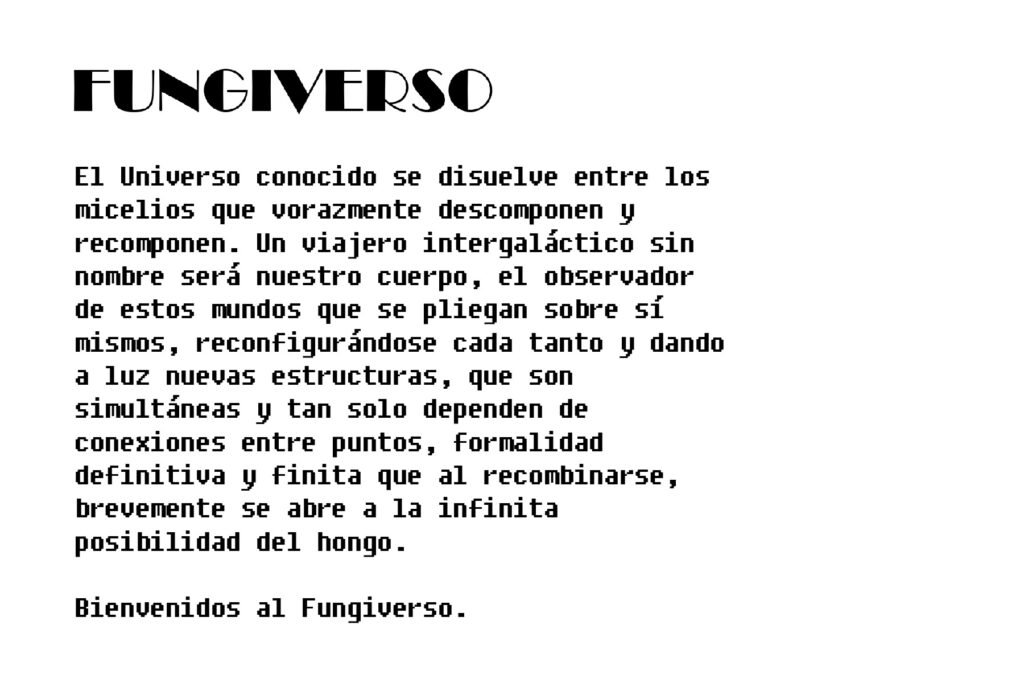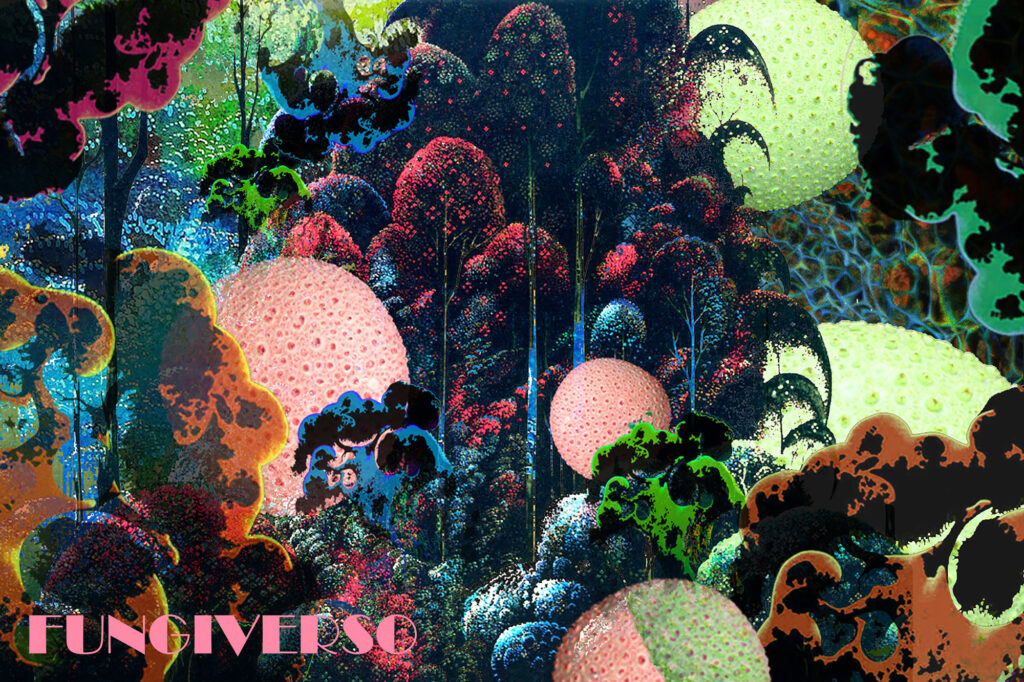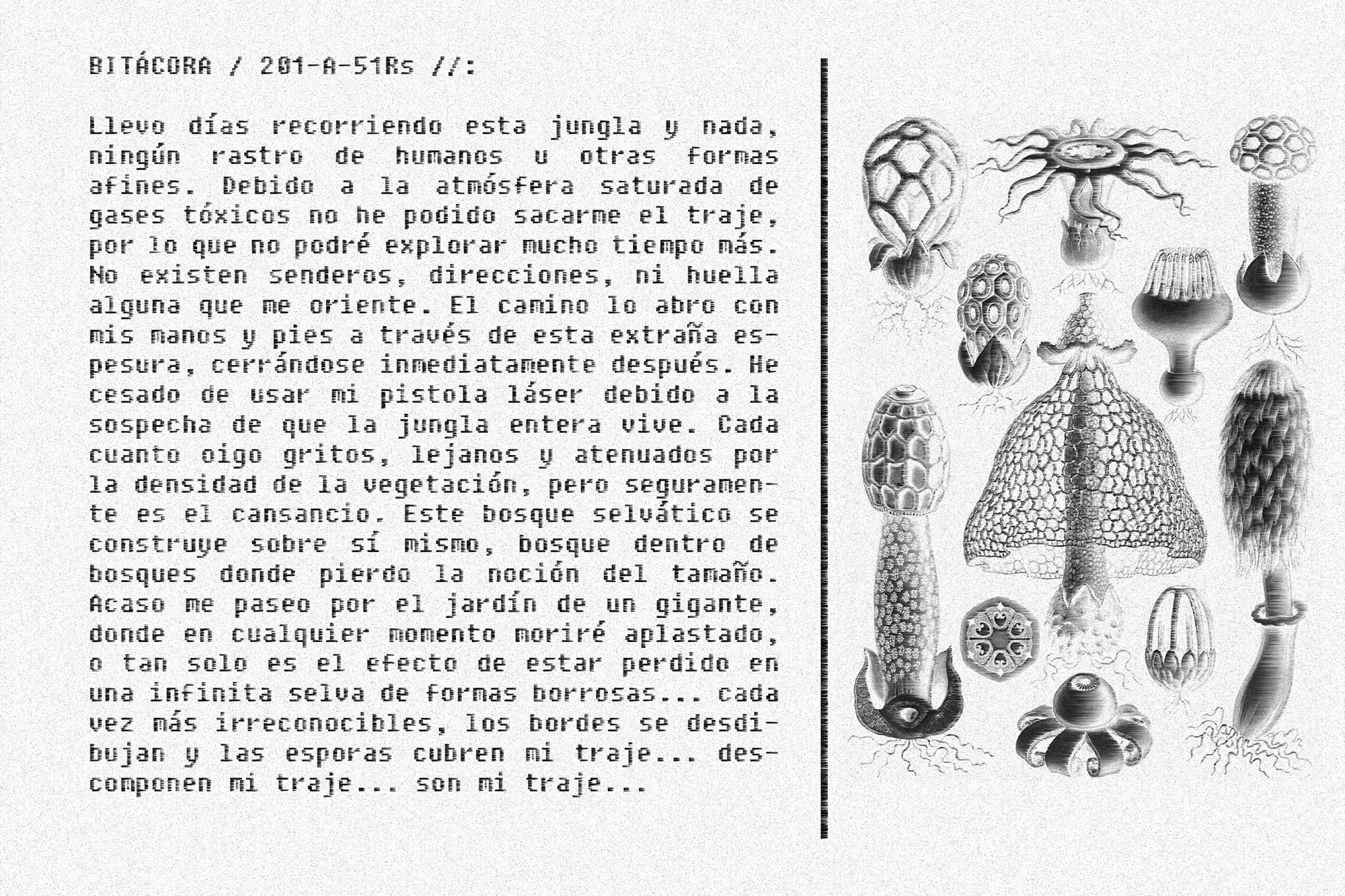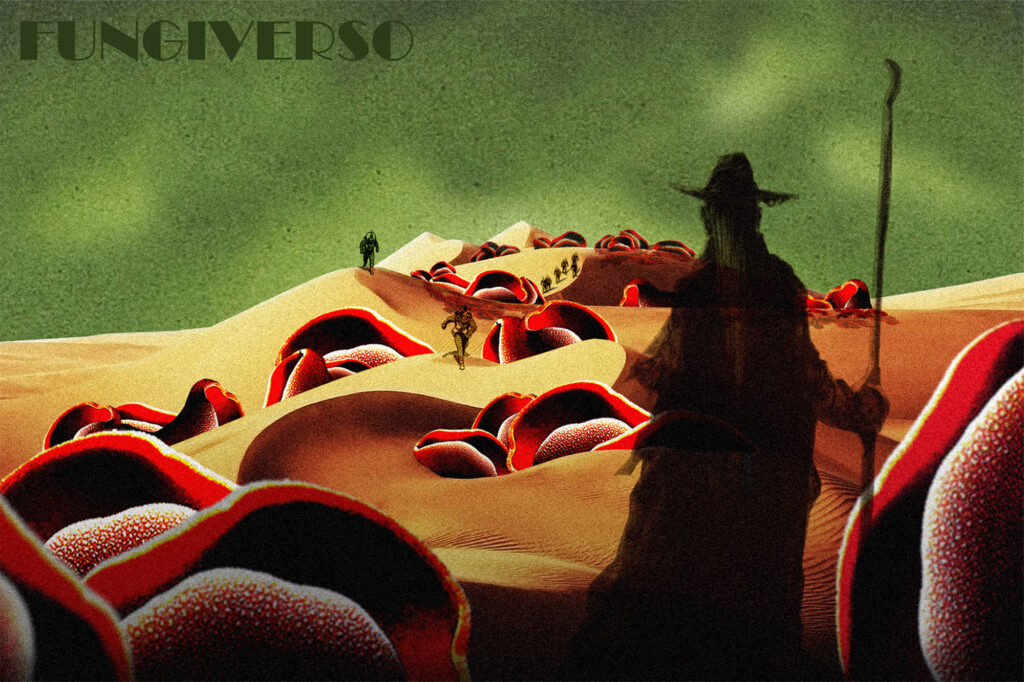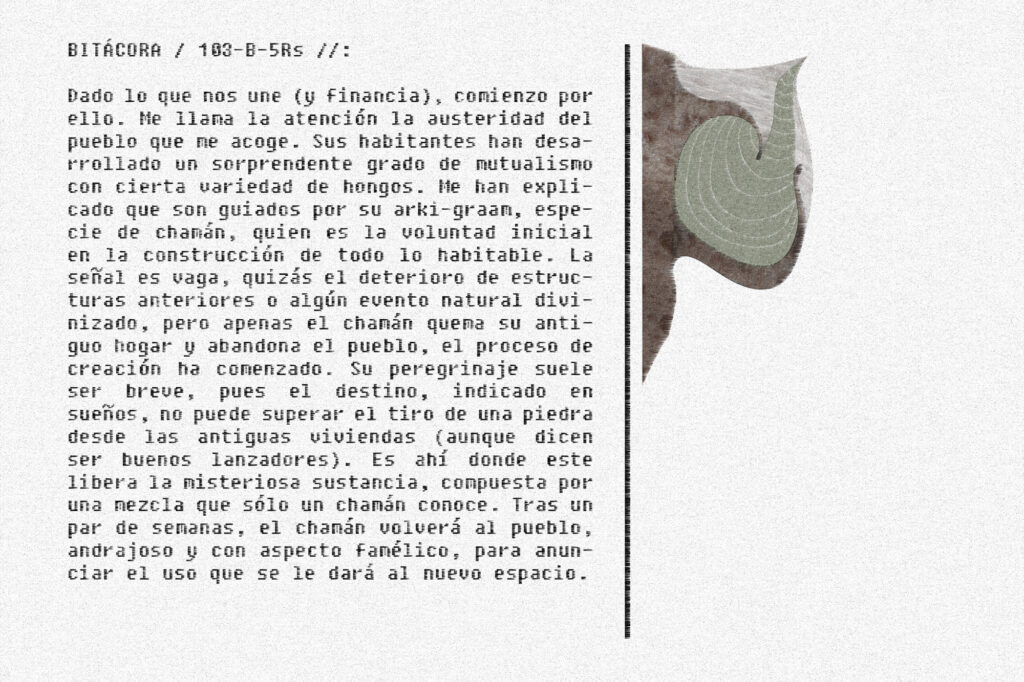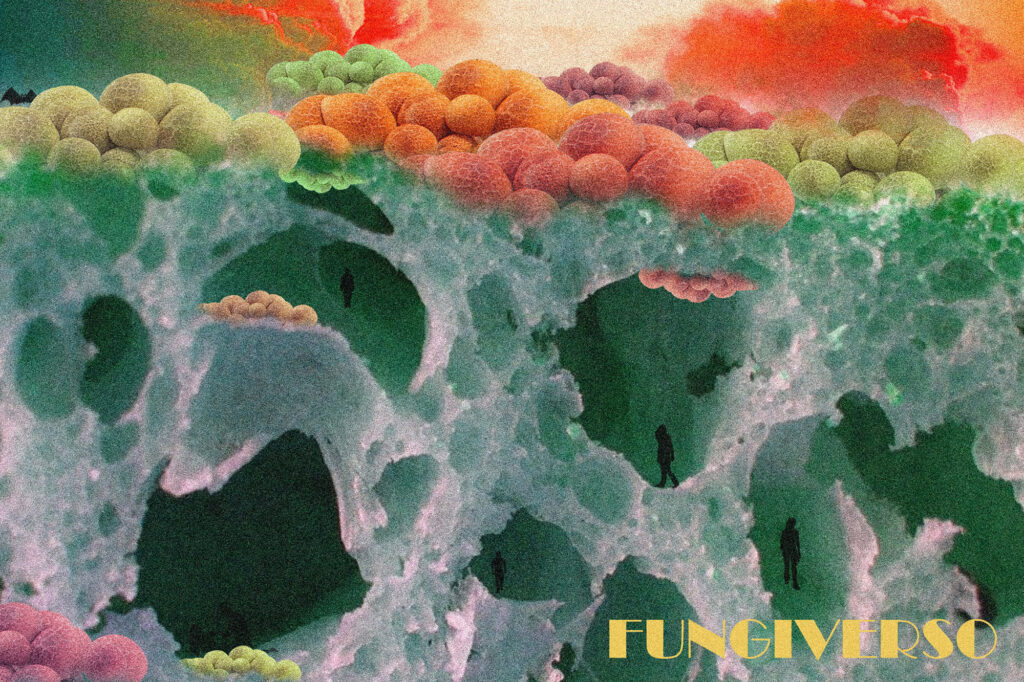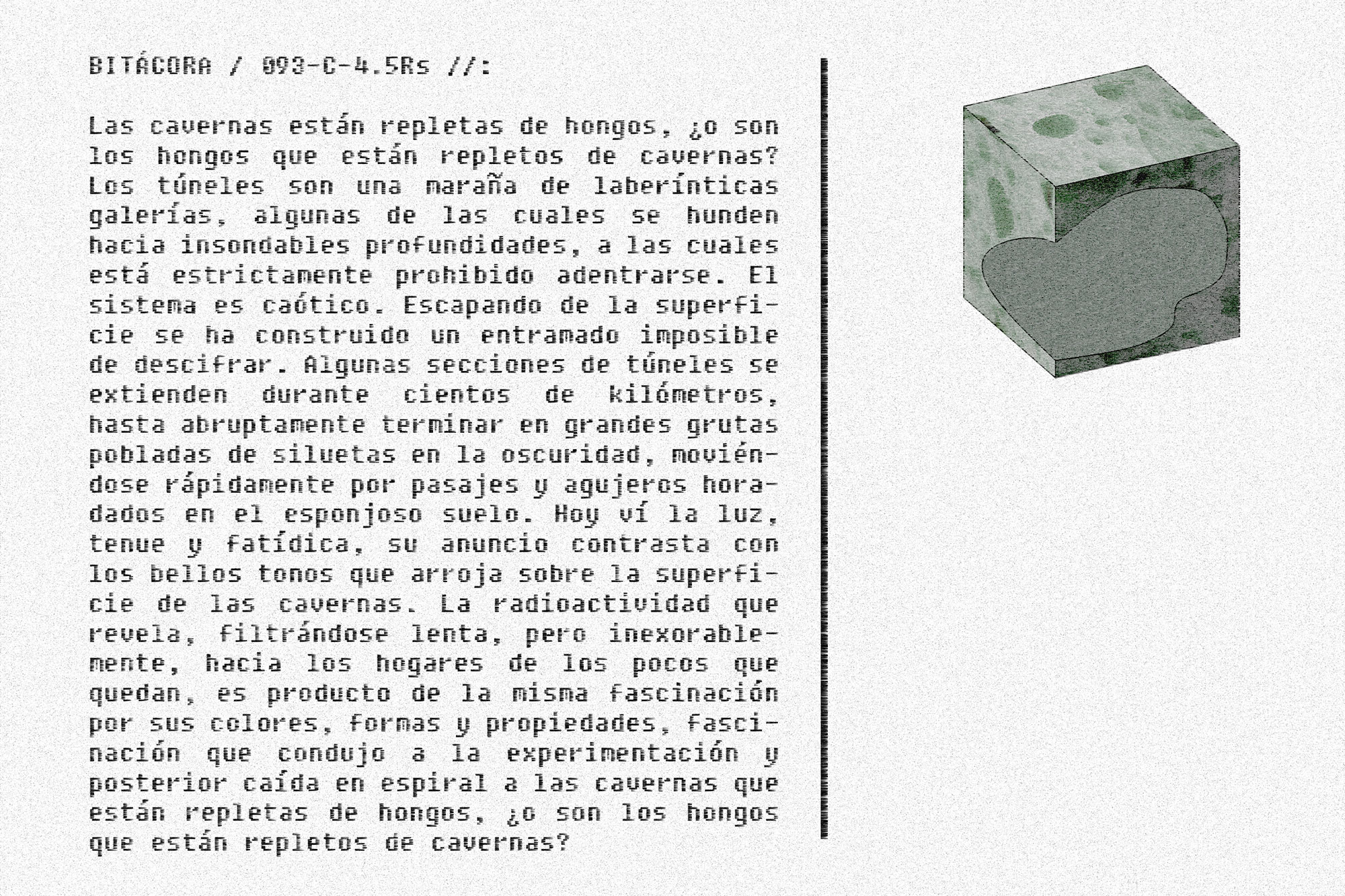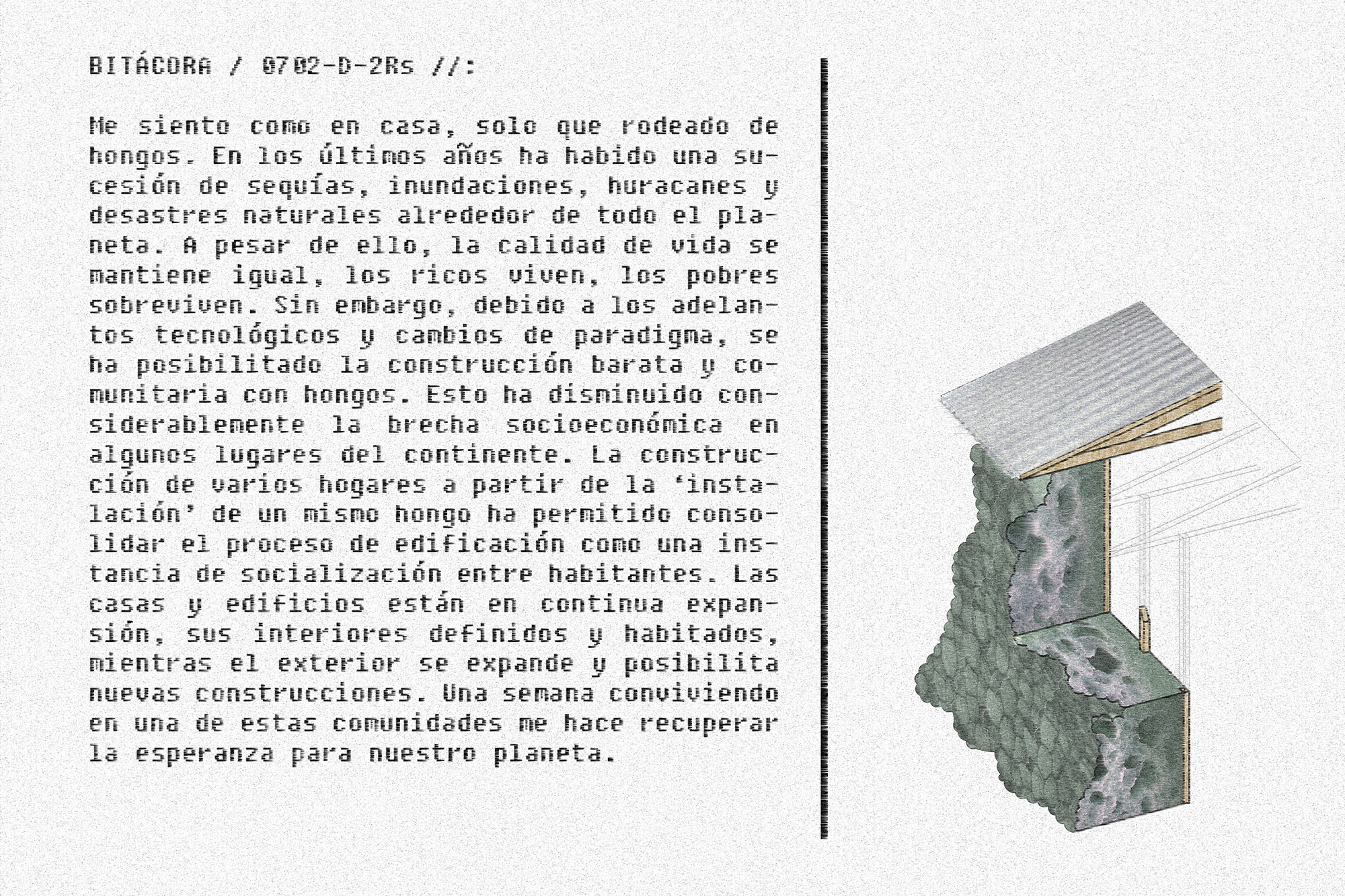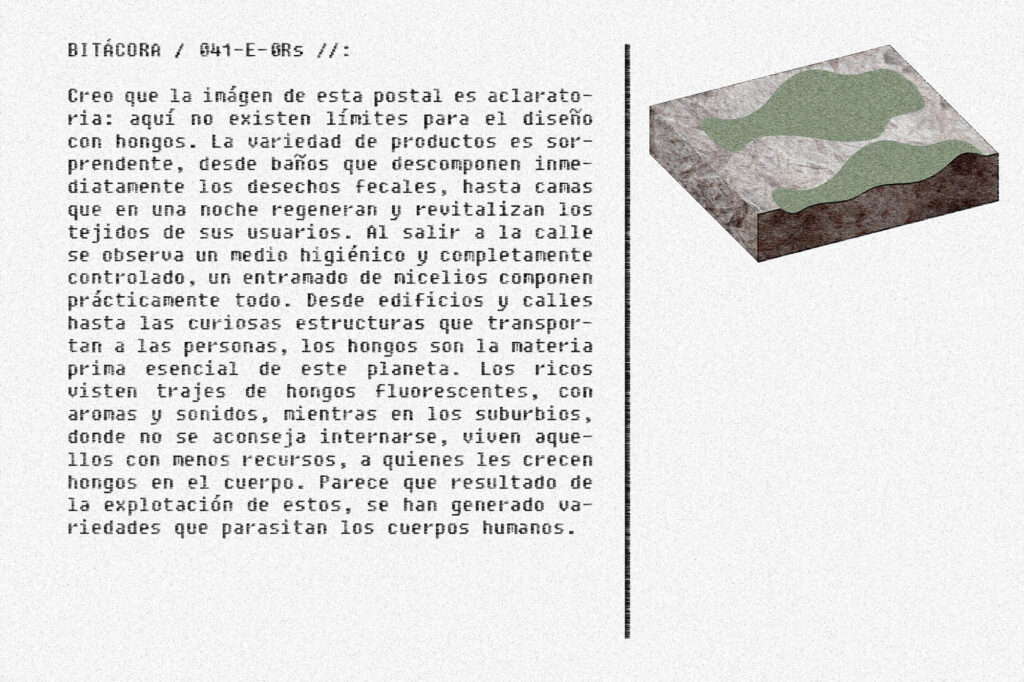Fungiverse is a conceptual proposal which speculates about the future relationship between biotechnology, in different cultural contexts, through its correlation between constructive methods and ways of human inhabitation. The plot takes place in five scenarios that, described by a mysterious visitor through postcards and construction details, diverge simultaneously.
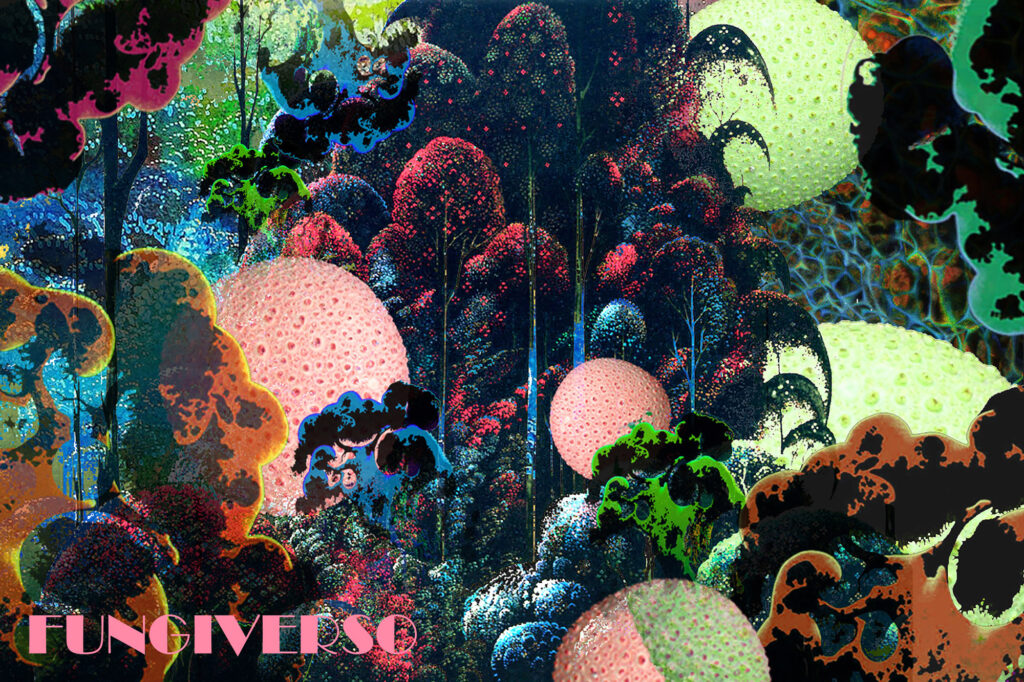
Year: 2016
Role: Co-author
Team: Aníbal Fuentes, Jens Benöhr Riveros, Hans Besser Kerrigan, María Alcira Soto Rovaretti
First Publication (Archdaily, 2016): https://www.archdaily.cl/cl/803496/fungiverso-viaje-a-las-bioarquitecturas-del-futuro
Second publication (Fundación Mar Adentro, 2022): https://fundacionmaradentro.cl/articulo/fungiverso-viaje-a-las-bioarquitecturas-del-futuro/
Synthetic biology involves the creation and re-design of living systems -or their components- through the programming of coherent and functional DNA sequences. Currently, the old transfer of just a couple of genes has been overtaken by the production of a fully synthetic genome. The regulatory pathways of organisms are modified by inserting artificial sequences of genes in order to provide new functions to cells and the entire organism. In this fashion, scientist have tried to define a «minimal genome» by experimenting with some bacteria characterized by small genomes (e.g. Mycoplasma mycoides), reducing the amount of nitrogenous bases until the organism can no longer survive: the size and structure of the genome at that moment will be the limit -always hypothetical- which helps to define and understand the smallest possible genetic structure that can sustain vital processes. This minimal structure would be the fundamental support for life, and therefore useful for the development of DNA biocircuits.
However, from synthetic biology arises a series of ethical issues: the possibility of a human being of manipulating or creating life, the impact of these actions on societal and ecosystems, or the power relations that silently determine the decisions that lead laboratories and large corporations with regards to this technology. In this context, we declare ourselves both apocalyptic and integrated (cf. Eco, 1964); apocalyptic because we believe in the imminent and immanent impact that synthetic biology will have in our daily life, and integrated because we decided not to ignore its use but to reflect on the different questions that can shed light on the future of a technology whose democratization is not guaranteed.
